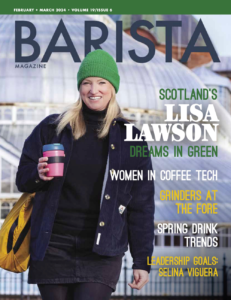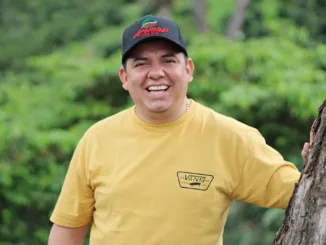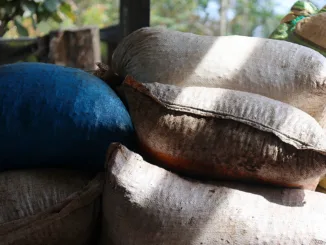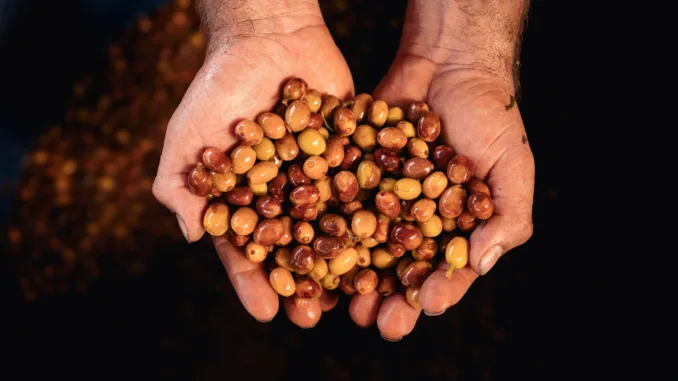
Smallholder coffee producers are some of the most vulnerable in the world; El Puente is a project focused on improving the prospects of producers in Huila, Colombia.
BY EDDIE P. GOMEZ
SPECIAL TO BARISTA MAGAZINE
Photos by Lina Vanessa Salazar
Producers continue to face an unprecedented number of challenges in coffee-growing regions around the world, which include the effects of climate change, global inflation, and labor shortages. Many of them teeter on the brink of financial hardship year after year because they lack the resources to maximize their yields. Fortunately, an increasing amount of attention is being paid to the plight of small-scale farmers, which has led to the formation of projects and social justice initiatives meant to mitigate those difficulties.
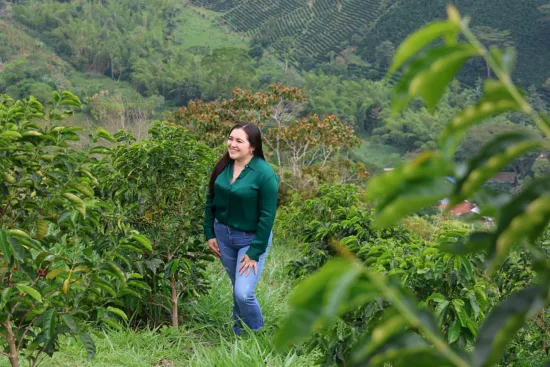
The Bridge
One such effort, called “El Puente” (The Bridge), was recently launched in Huila. Huila is in the Magdalena River Valley in southern Colombia, where the central and eastern range of the Colombian Andes converge. There are approximately 155,000 hectares dedicated to coffee production in Huila, yet the average farm is only 2.5 hectares in size, illustrating the number of small-scale producers in the region.
In 2018, the project was launched to help small-scale producers get a better price for their coffee. It’s named for the footbridge that spans a nearby river, and for the connection between small-scale producers and the global specialty-coffee industry. El Puente is anchored by a community processing facility located in Palestina. Strategically located in an area with a high density of coffee farms, the facility is within view of downtown Palestina, and a short drive from the coffee-trading district in Pitalito.
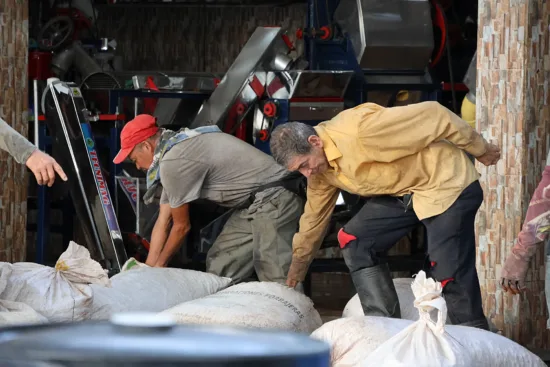
El Puente Partners
El Puente is an ongoing partnership between many actors in the coffee sector surrounding Palestina. One of the project’s leading partners is Aromas del Sur, a sprawling network of coffee farms owned by the husband-and-wife duo of Claudia Samboni and Rodrigo Sanchez. The two are widely respected innovators who’ve worked for decades to improve specialty coffee in the region.
El Puente also partners with El Mirador, the farm that houses its processing facility in Palestina. El Mirador is owned by another husband-and-wife team, Elkin Guzman and Diana Devia, who are best known for alternative processing methods they helped to pioneer. Medellin-based green coffee exporter Clearpath Coffee, founded in 2016 by entrepreneur Vicente Mejia, acts as a third partner.
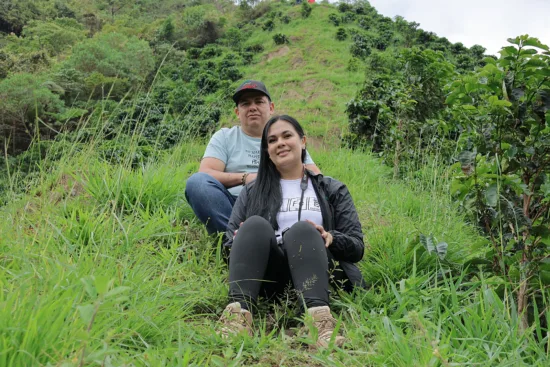
Funding & Unique Business Model
Funding for El Puente is modeled on Yunus Social Businesses, an approach to financing projects in economically challenged regions first established by Nobel Peace Prize Laureate Professor Muhammad Yunus. Initiatives enacted through the Social Business model typically place identifiable, socially conscious goals ahead of the profit motive. According to the Yunus Centre website, “The purpose of the investment is purely to achieve one or more social objectives through the operation of the company …” Those living on the economic margins in underdeveloped regions are given access to the financial resources to build self-sustaining businesses. The goal is to help producers out of poverty without relying on charity.
In the case of El Puente, Clearpath Coffee was able to secure $500,000 in loans from the Yunus Social Business Fund, which were disbursed over a four-year period. Audits of El Puente’s progress toward fulfilling their socially driven objective and financial reviews of the project’s economic viability followed each disbursement of funds. Specifically, the project seeks to promote rural development by giving access to post-harvest processing facilities to small-scale producers in Pitalito and Palestina.
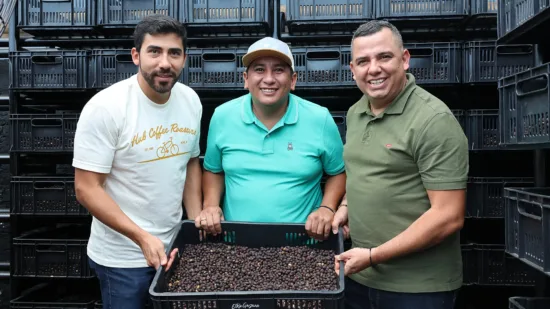
Access to Processing & Fermentation Methods
The inability to fully process their coffees can prevent small-lot producers from being economically viable. “The lack of drying and storage space needed to handle an entire crop can result in defects or the need to sell wet, parchment coffee at a discounted rate,” says Vicente Mejia of Clearpath Coffee. “A lack of cash flow complicates matters just as much. Having reserves is necessary during harvest because it is needed to hire labor and pay for post-harvest expenditures.”
Another obstacle for small-scale producers involves the cost of adopting innovative processing methods, which are often used to produce non-traditional coffees that consumers around the world are increasingly demanding. Washed coffees have been the norm in Colombia for more than a century. Honey, natural, and coffees produced using experimental fermentation methods, such as co-fermented ones, are relatively new. Meeting the emerging market demand for alternatively processed coffee requires investment in infrastructure upgrades, which is not always possible for small farmers. There’s potential to earn a higher price at market for such coffees, but significant investment, risk of defects, or ruined batches makes these coffees cost-prohibitive even for some medium-sized producers.
Join us tomorrow for part two of this article to learn more about El Puente and how it operates.
ABOUT THE AUTHOR
Eddie P. Gomez (he/him) is a freelance writer based in Modesto, Calif. When he is not substitute teaching kindergarten classes, he wanders from city to city, perfecting the art of the food and coffee adventure.
Subscribe and More!
Out now: It’s the February + March 2024 issue of Barista Magazine! Read it for free with our digital edition. And for more than three years’ worth of issues, visit our digital edition archives here.
You can order a hard copy of the magazine through our online store here, or start a subscription for one year or two.

